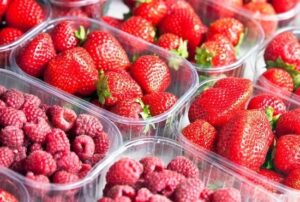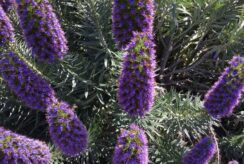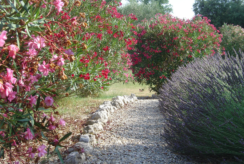 Growing flowers and vegetables is no easy task; it takes a combination of hard work, patience, and a little bit of good fortune. The delicate nature of cultivating herbs in a herb garden is one example of reality about gardens that can be difficult to grasp, but it’s not the only one. So we couldn’t resist sharing this random mix of gardening-related items because we’re so passionate about the subject.
Growing flowers and vegetables is no easy task; it takes a combination of hard work, patience, and a little bit of good fortune. The delicate nature of cultivating herbs in a herb garden is one example of reality about gardens that can be difficult to grasp, but it’s not the only one. So we couldn’t resist sharing this random mix of gardening-related items because we’re so passionate about the subject.
- There are many flowers in a sunflower. It’s not simply one.
There are 1,000 to 2,000 individual flowers in the fuzzy brown centre and the typical yellow petals.
2. One teaspoon of soil contains more microbes than people on the planet.
It has come to life! It’s okay if that knowledge makes you itch, but bacteria are critical to maintaining a healthy soil’s supply of essential nutrients.
 3. Plants are indeed responsive to sound.
3. Plants are indeed responsive to sound.
Studies have demonstrated that vibration (such as music or perhaps even the beautiful sound of your voice) can affect plant development, contrary to the well-known old wives’ tale of talking to plants to help them grow.
The Myth Busters (in a non-scientific investigation) also found that plants grow more rapidly in a sound-tracked greenhouse than in a silent one.
 4. The aroma and nectar in your garden attract these insects more than the brightly coloured flowers.
4. The aroma and nectar in your garden attract these insects more than the brightly coloured flowers.
Smithsonian Institute reports that new varieties of popular flowers have been bred for improved colour and size but have often lost their aroma in the process.
The Smithsonian Institute. In other words, common weeds like dandelions and clovers might be the most enticing items for butterflies in your yard (they hate pesticides, too).
Choosing heritage flower seeds is an excellent method to ensure that they fly your way.
5. You may grow sweeter tomatoes by using baking soda as a fertilizer.
Your harvest will taste sweeter if you regularly sprinkle some of this household essential onto the soil.
 6. The rose family includes some of your favourite fruits, such as raspberries and strawberries.
6. The rose family includes some of your favourite fruits, such as raspberries and strawberries.
These long-stemmed Valentine’s Day cousins are also Rosaceae (a family of fruits and vegetables), which means they are related to a wide range of other fruits and vegetables.




